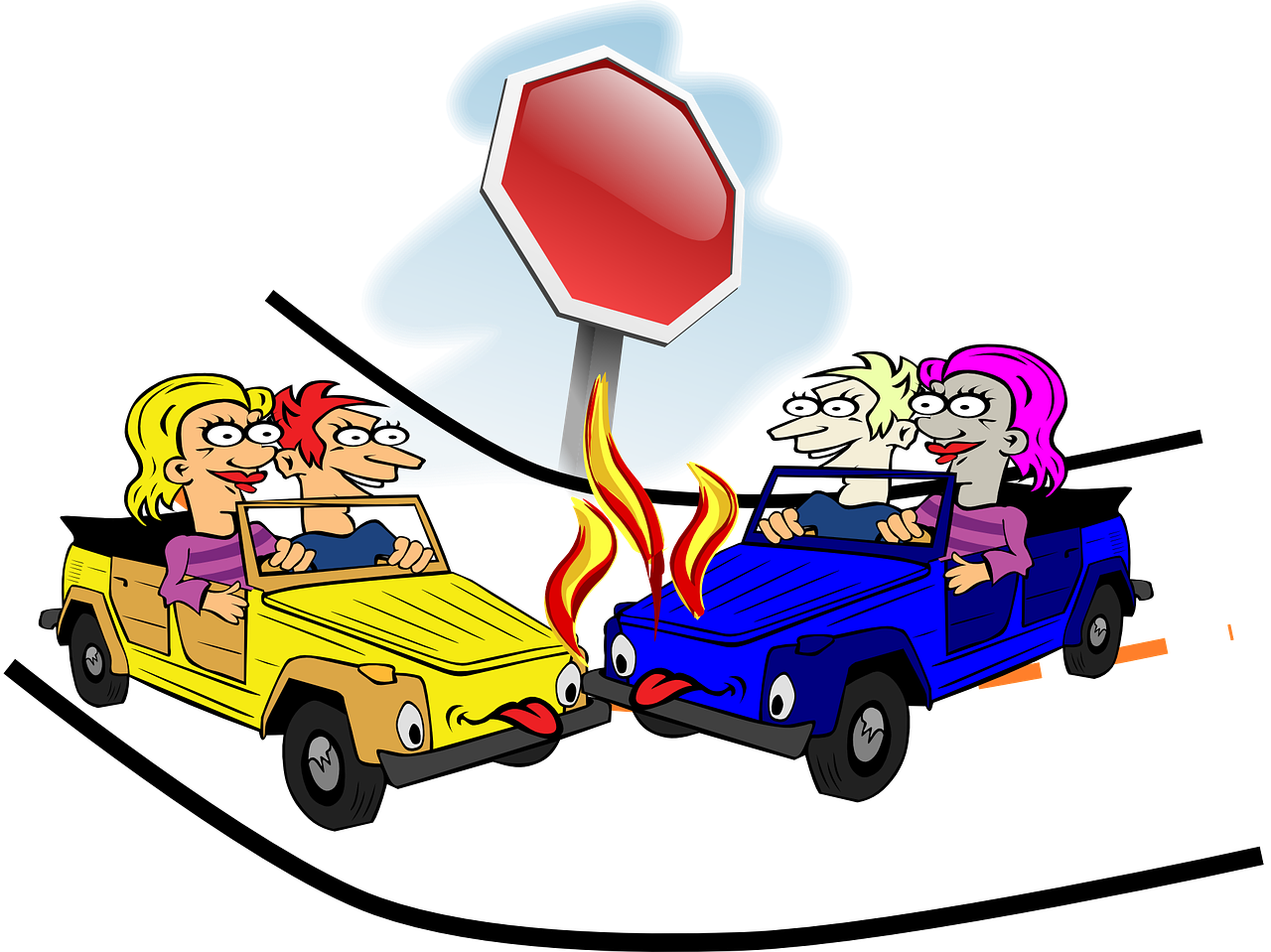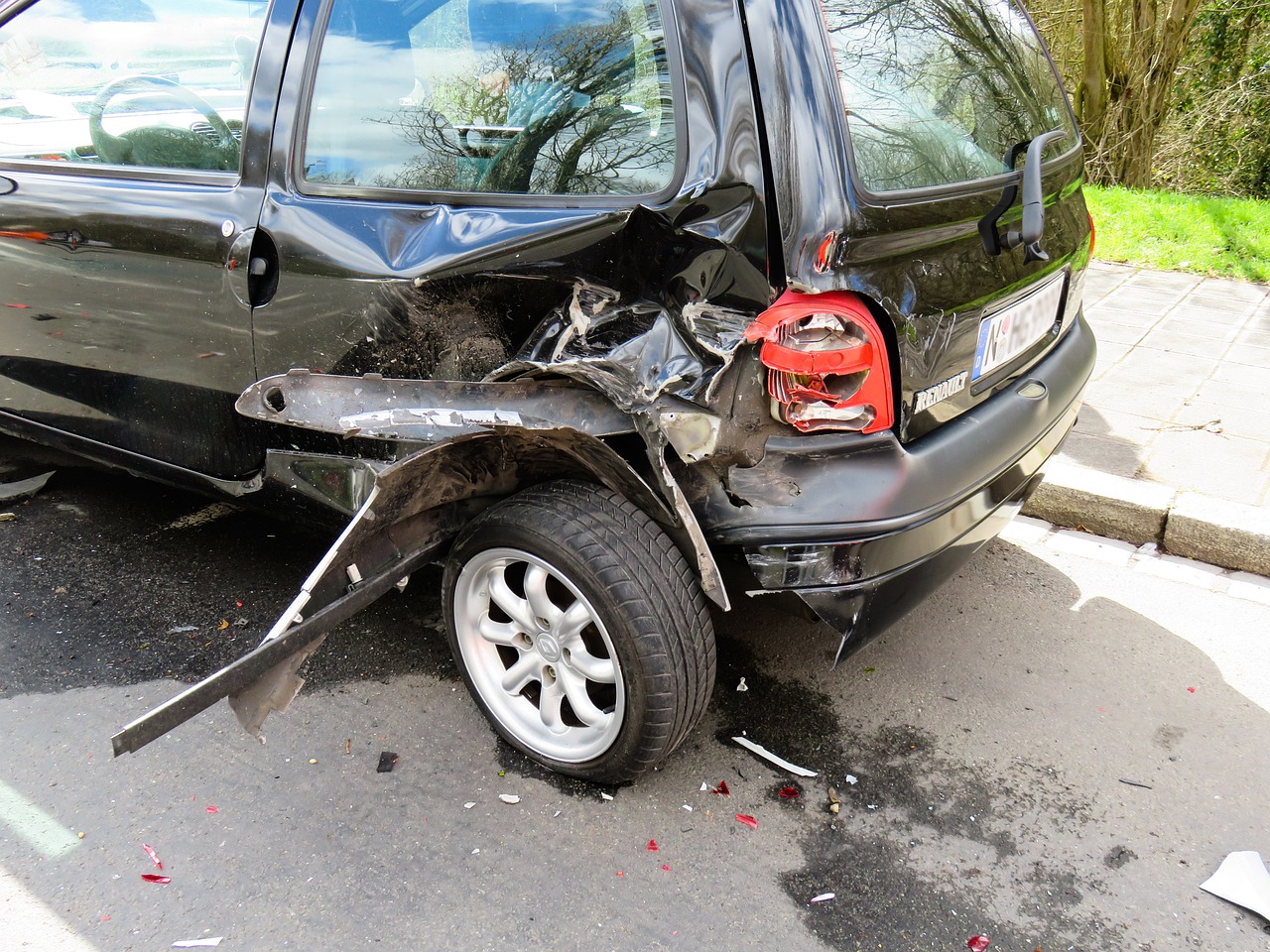Have you ever wondered what it means when the other person involved in a car accident hires a lawyer, especially when you are the one at fault? It’s a common situation that can leave you feeling confused and unsure of what to do next. In this article, we will explore the reasons why the other party might choose to hire a lawyer and what it could mean for you. By understanding the potential implications, you can make informed decisions and take necessary actions to protect your interests. So, let’s delve into this topic and uncover the importance of legal representation in car accident cases.
Understanding the Other Person’s Decision to Hire a Lawyer
Car accidents can be distressing and overwhelming situations, especially when you are at fault. It can become even more complicated when the other person involved decides to hire a lawyer. Although it may initially seem intimidating, it is important to understand the reasons behind their decision and how it could potentially impact you.
Determining Liability in a Car Accident
Determining liability in a car accident is crucial for both parties involved. When the other person hires a lawyer, it indicates that they believe you are at fault for the accident and they want to hold you responsible. Their lawyer will investigate the accident thoroughly, gathering evidence to establish fault and liability. This process may involve reviewing police reports, obtaining witness statements, analyzing medical records, and reconstructing the accident scene.
Reasons for Hiring a Lawyer
There are several reasons why the other person may choose to hire a lawyer in a car accident where you are at fault. Understanding these reasons can provide insight into their motivations and help you navigate the situation effectively.
Protection of Their Rights
One of the primary reasons for hiring a lawyer is to protect their rights. They want to ensure that they are not taken advantage of during the legal process and that their interests are safeguarded. Their lawyer will advocate for them and make sure they receive the compensation they are entitled to.
Maximizing Compensation
By hiring a lawyer, the other person aims to maximize the compensation they receive for their damages. They may have medical bills, property damage, lost wages, and other expenses resulting from the accident. Their lawyer will work diligently to calculate the full extent of their losses and negotiate with the insurance company or pursue legal action to ensure they receive fair compensation.
Navigating Complex Legalities
Navigating the legal system can be complex and confusing, especially if you are unfamiliar with the laws and procedures involved. Hiring a lawyer allows the other person to rely on a legal professional who has the knowledge and experience to handle their case effectively. This ensures that they are fully informed about their rights and obligations throughout the entire process.
Dealing with Insurance Companies
Dealing with insurance companies can often be a challenging and frustrating experience. The other person’s lawyer will handle all communication and negotiations with the insurance company on their behalf. This relieves them of the burden of having to navigate complex conversations with adjusters and ensures that their rights are protected.
Access to Professional Expertise
Lawyers specialize in different areas of law and have a deep understanding of legal principles and strategies specific to car accidents. By hiring a lawyer, the other person gains access to this professional expertise. Their lawyer will have the necessary knowledge and resources to build a strong case and present it effectively.
Leveling the Playing Field
When the other person hires a lawyer, it can level the playing field and ensure a fair fight. Without legal representation, you may feel overwhelmed and unsure of how to protect your rights effectively. Having your own lawyer will provide you with the support and guidance you need to navigate the legal process and advocate for your interests.
Handling Negotiations
Negotiating with insurance companies or pursuing legal action can be challenging, especially if you are not familiar with the process. The other person’s lawyer is experienced in negotiating settlements and will work to achieve the best possible outcome for their client. They will fight for fair compensation and ensure that their client’s rights are upheld.
Preparing for Litigation
In some cases, hiring a lawyer may indicate their intent to pursue litigation. Litigation involves taking the case to court to seek compensation for damages. If the other person’s lawyer believes that negotiations with the insurance company are not yielding a fair settlement, they may advise their client to file a lawsuit. This can result in a more protracted legal process for both parties involved.

The Process of Hiring a Lawyer
Now that you have a better understanding of why the other person may choose to hire a lawyer, let’s walk through the process they will typically follow in hiring legal representation.
Researching and Finding an Attorney
The first step for the other person in hiring a lawyer is to research and find a qualified attorney. They will seek a lawyer who specializes in personal injury or car accident cases. Online directories, referrals from friends or family, and legal websites can be valuable resources for finding reputable attorneys.
Initial Consultation
Once they have identified potential attorneys, the other person will schedule an initial consultation. During this meeting, the lawyer will review their case, assess the strength of their claim, and provide an overview of the legal process. The consultation also allows the other person to evaluate the lawyer’s expertise and determine if they are the right fit for their needs.
Working on a Contingency Fee Basis
In many car accident cases, lawyers work on a contingency fee basis. This means that the lawyer’s fees are contingent upon successfully recovering compensation for their client. If they do not win the case or negotiate a settlement, the lawyer does not receive a fee.
Signing the Representation Agreement
If the other person decides to move forward with a particular lawyer, they will sign a representation agreement. This agreement outlines the lawyer’s role, responsibilities, and the terms of their legal representation. It is important to carefully review and understand this agreement before signing.
Building a Strong Case
Once the representation agreement is signed, the lawyer will begin building a strong case on behalf of the other person. This involves gathering evidence, interviewing witnesses, analyzing medical records, and consulting with experts if necessary. They will work diligently to establish fault and liability and calculate the full extent of their client’s damages.
Gathering and Preserving Evidence
To build a strong case, the other person’s lawyer will gather and preserve evidence related to the accident. This may include obtaining police reports, medical records, photographs of the accident scene, surveillance footage, and witness statements. Preserving evidence is crucial to ensuring a solid foundation for their client’s claim.
Investigating the Accident
In addition to gathering evidence, the lawyer will conduct a thorough investigation of the accident. They may hire accident reconstruction experts, review relevant traffic laws and regulations, and assess any contributing factors to the accident. This investigation helps establish a clear picture of what happened and who is at fault.
Calculating Damages
Calculating damages accurately is essential to ensure the other person receives fair compensation. Their lawyer will assess medical expenses, property damage, lost wages, pain and suffering, and any other economic and non-economic losses resulting from the accident. This comprehensive calculation helps determine the appropriate amount to seek in a settlement or lawsuit.
Negotiating with the Opposing Party
Once the lawyer has built a strong case and calculated damages, they will negotiate with the opposing party or their insurance company. Negotiations aim to reach a settlement that adequately compensates their client for their losses. The lawyer will advocate for their client’s rights and ensure that their interests are protected during the negotiation process.
Filing a Lawsuit, if Necessary
If negotiations fail to result in a fair settlement, the other person’s lawyer may advise them to file a lawsuit. Filing a lawsuit initiates the legal process and allows for further examination of the case by a court. Litigation can be a lengthy and complex process, but it may be necessary to pursue just compensation for their client.

The Implications for the At-Fault Party
As the at-fault party, there are several implications you should be aware of when the other person hires a lawyer. These implications can impact your legal responsibilities, communication with your insurance company, and potential outcomes of the case.
Legal Responsibilities and Rights
When the other person hires a lawyer, it is essential to understand your legal responsibilities and rights. You have the right to legal representation and should consult with an attorney experienced in car accident cases to understand your options. Your lawyer will guide you on how to protect your rights and advocate for your interests.
Communication with Their Insurance Company
Being at fault in a car accident means that your insurance company will likely be involved in the process. It is important to communicate openly and honestly with your insurance company, providing them with the necessary information about the accident. However, it is crucial to consult with your lawyer before making any statements or admissions of fault.
Involvement of Their Insurance Provider
The other person’s lawyer will work with their insurance company throughout the legal process. Insurance companies have teams of adjusters and lawyers who will review the claim and negotiate on behalf of their insured party. It is important to have your own lawyer who can communicate and negotiate with the other party’s insurance provider to protect your rights and interests.
Responding to Legal Actions
If the other person decides to file a lawsuit, you will need to respond legally. This involves providing a formal response to the lawsuit, outlining your position, and possibly presenting your own evidence and witnesses. Your attorney will guide you through this process and ensure that you respond appropriately and within the required timeframe.
Potential Outcomes and Consequences
When the other person hires a lawyer, there are various potential outcomes and consequences you should be prepared for. It is possible that a settlement agreement may be reached, resulting in an agreed-upon compensation amount. However, if negotiations fail or both parties cannot agree on a settlement, the case may go to trial, where a judge or jury will determine the outcome.
Compensation for Damages
If the other person’s lawyer successfully establishes your fault and liability, you may be held responsible for compensating them for their damages. The compensation awarded can include medical expenses, property damage, lost wages, and pain and suffering. It is crucial to have legal representation to ensure that the compensation amount is fair and reasonable.
Impact on Insurance Premiums
Being at fault in a car accident can have implications on your insurance premiums. Your insurance company may raise your rates or even choose to cancel your policy. It is important to discuss these potential consequences with your lawyer and actively participate in resolving the claim to minimize the impact on your insurance premiums.
The Possibility of Legal Proceedings
When the other person hires a lawyer, there is a possibility of legal proceedings, such as a lawsuit. This can prolong the legal process and potentially increase the complexity and cost of resolving the case. It is crucial to have legal representation to navigate these proceedings effectively and ensure your rights are protected.
Seeking Legal Representation for Themselves
When the other person hires a lawyer, it is essential for you to seek legal representation for yourself. Having your own attorney will ensure that your rights and interests are fully protected throughout the legal process. Your lawyer will advocate for you, help gather evidence, and negotiate on your behalf.
Considering Settlement Options
As the at-fault party, it is important to consider settlement options when the other person hires a lawyer. Your attorney will analyze the strengths and weaknesses of your case and the potential outcomes of going to trial. They will advise you on whether accepting a settlement offer is in your best interest or if it is more advantageous to pursue litigation.
Working with the At-Fault Party’s Insurance
When you are at fault in a car accident and the other person hires a lawyer, it is important to understand how you will interact with their insurance company. These interactions can have significant implications on the overall outcome of the case.
Understanding Insurance Coverage
To effectively navigate interactions with the other person’s insurance company, it is important to understand their insurance coverage. Familiarize yourself with the types and limits of their coverage, as well as any relevant exclusions or limitations. This will help you determine the extent to which their insurance provider may be liable for damages.
Notifying the Insurance Company
If you have not done so already, notify your insurance company about the accident as soon as possible. Cooperate with their investigation and provide all necessary information honestly and accurately. Your insurance company will guide you through the claims process and work towards a resolution alongside you and your attorney.
Providing a Statement
When dealing with the other person’s insurance company, it is essential to remember that you have the right to remain silent and avoid making statements that could be used against you. Consult with your lawyer before providing any formal or recorded statements to the insurance adjusters. Your attorney will ensure that your statements are appropriate and protect your interests.
Cooperating with the Investigation
Cooperation is key when working with the other person’s insurance company. Provide them with all requested documents, such as police reports and medical records, in a timely manner. Cooperating with their investigation helps establish trust and may facilitate more efficient negotiations and resolution of the claim.
Potential for Policy Limitations
The other person’s insurance policy may have limitations or exclusions that could impact the amount of compensation they can receive. For example, there may be a cap on the amount payable for certain types of damages or a threshold that must be met before the policy applies. Understanding these limitations can help manage expectations during negotiations.
Contributory and Comparative Negligence
Contributory and comparative negligence laws vary by state and can affect the amount of compensation available to the other person. Contributory negligence means that if they were partially at fault for the accident, their compensation may be reduced or eliminated altogether. Comparative negligence allows for a proportional reduction in compensation based on the degree of fault attributed to each party. Your lawyer will understand the relevant laws in your jurisdiction and guide you through this aspect of the case.
Challenges in Settlement Negotiations
Settlement negotiations can be challenging, particularly if there are disputes regarding liability or the extent of damages. The other person’s lawyer will advocate for their client’s best interests and try to achieve the maximum compensation possible. Your lawyer will work to protect your rights and interests during these negotiations and ensure any settlement offers are fair, reasonable, and aligned with your needs.
Settlement Offers and Counteroffers
During the negotiation process, settlement offers and counteroffers will likely be exchanged between the parties and their legal representatives. It is crucial to consult with your attorney before accepting or rejecting any offers. They will carefully evaluate the offers and advise you on the best course of action based on the unique circumstances of your case.
Reviewing and Signing Releases
If a settlement is reached, both parties will need to review and sign releases. A release is a legally binding document that formally closes the case, ensuring that neither party can pursue further legal action related to the accident. It is important to thoroughly review and understand the terms of the release before signing it, as it may impact your legal rights and potential future claims.
Resolving the Claim
The ultimate goal in working with the other person’s insurance company is to resolve the claim in a fair and satisfactory manner. This may involve negotiating a settlement agreement or, in some cases, proceeding to litigation. Collaboration between your attorney and the insurance company can help facilitate a resolution that meets your needs and protects your rights.

FAQs about the Other Person Hiring a Lawyer in Fault-Based Car Accidents
- Should I be concerned if the other person hires a lawyer for a car accident where I am at fault?
It is not uncommon for individuals involved in car accidents to seek legal representation. However, you should ensure you have your own legal counsel to protect your interests and navigate the legal process.
- Can the other person’s lawyer force me to admit fault?
It is essential to consult with your own attorney before making any admissions of fault. The other person’s lawyer cannot force you to admit fault, but they may try to use tactics to make you do so. Your attorney will guide you on handling such situations.
- What should I do if the other person’s lawyer contacts me?
If the other person’s lawyer contacts you, it is advisable to inform your attorney immediately. Your lawyer will provide guidance on how to handle communications to protect your rights and interests.
- Will my insurance company provide legal representation?
While your insurance company may provide a defense attorney, it is crucial to have independent legal representation to ensure your rights are fully protected. Consult with an attorney experienced in car accident cases to understand your options.
- Can I negotiate a settlement without hiring a lawyer?
While it is possible to negotiate a settlement without hiring a lawyer, it is not recommended. An attorney specializing in car accident cases can help you determine a fair settlement amount, protect your rights, and handle negotiations on your behalf.